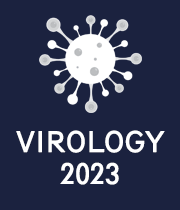Virology 2023 Important Update
This is to inform that Virology 2023 event is now merged with Infection 2023 which will be held on same dates June 21-22, 2023 in Rome, Italy and virtually.
For complete details about the merged event, please visit: https://infectiouscongress.com
For further details, please contact us at infectious@magnusconference.com or call + 1 (702) 988 2320
Clinical and Diagnostic Virology
As a result of the convergence of multiple independent advances, diagnostic virology is rapidly moving into the mainstream of clinical practise. For example, rapid advancements in antiviral therapy have increased the demand for particular viral diagnoses. Second, advances in technology, notably in the field of nucleic acid chemistry, have resulted in the development of significant new tools for viral diagnosis. Third, as a result of the HIV/AIDS epidemic, the number of patients at risk for opportunistic viral infections has increased dramatically. These advancements are not only boosting the use of diagnostic virology, but they are also reshaping it.
- Epidemiology
- Pathogenesis
- Diagnosis
- Detection
- Prevention
- Treatment
- Virological Study

